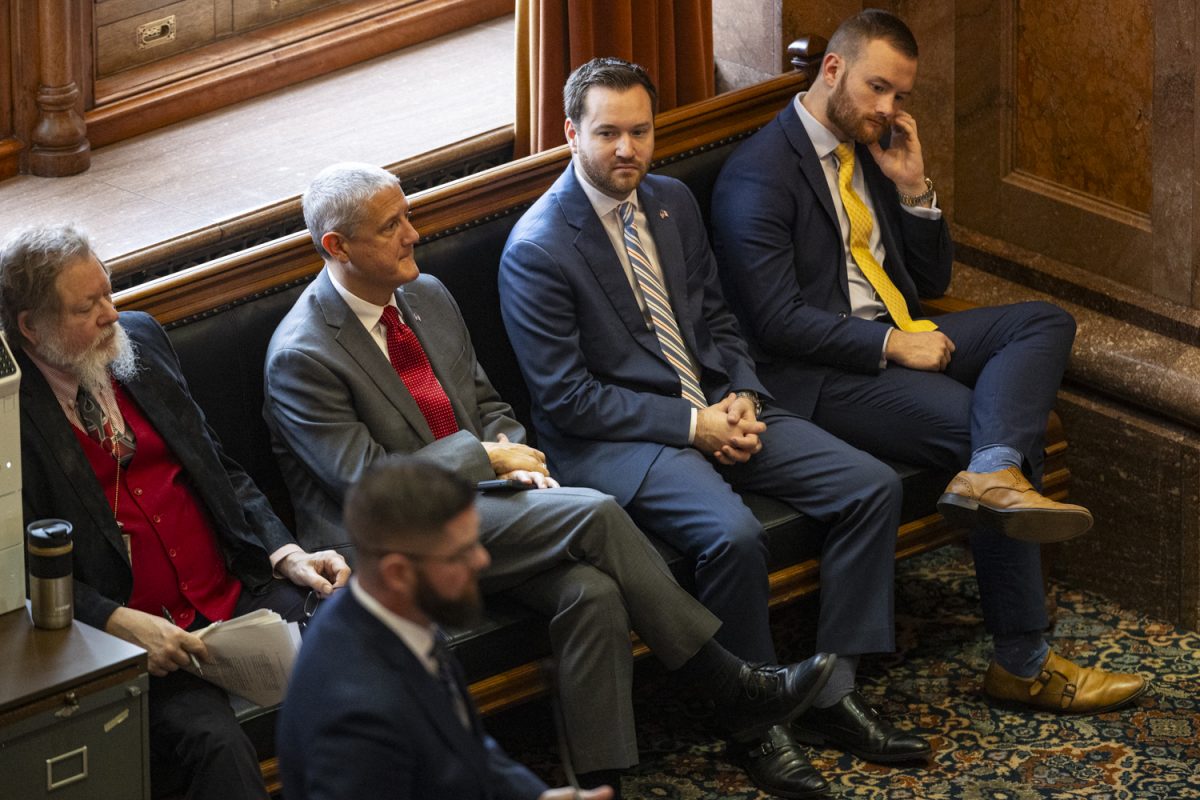Iowa House lawmakers advanced a bill increasing teacher pay on Thursday that would decrease the amount from Iowa Gov. Kim Reynolds’ original proposed legislation, which has since been killed in the House after not advancing past legislative deadlines.
The bill was passed unanimously out of the Iowa House Education Committee on Thursday afternoon.
House Study Bill 714, introduced Thursday, would increase the minimum annual starting salary for teachers from $33,500 to $47,500 in the 2024-2025 school year. The bill increases the minimum teacher starting salary to $50,000 for teachers beginning on or after July 1, 2026.
In the Condition of the State Address last month, Reynolds proposed increasing teachers’ starting pay to $50,000, a 50 percent growth, and setting a minimum salary of $62,000 for teachers with at least 12 years of experience.
Reynolds’ bill is set to die in the House and has been heavily amended regarding the amount set for minimum starting teacher pay in the Senate.
Unlike Reynolds’ proposal, the bill addresses additional employees of school districts, defined as “educational support personnel” — regular and part-time employees of a school district who are not salaried, such as paraprofessionals.
Under the bill, educational support personnel would receive a minimum wage of $15 per hour.
The bill requires the Iowa Department of Management to give schools additional per-pupil funding to account for the amount needed to fulfill the new salary minimum for teachers and support staff.
The bill makes an additional appropriation of $22 million to be distributed to districts to help further increase teacher pay. The funds will be managed by the Iowa Department of Education.
Rep. Bill Gustoff, R-Des Moines, chairman of the subcommittee on the bill which unanimously passed the proposal Thursday, said the bill is a collaborative effort to address the needs of both large and small schools in Iowa.
Gustoff said the bill will give districts the flexibility to help make the pay increase sustainable.
Patty Alexander, a retired first-grade teacher, worked in public schools for 30 years. At the subcommittee hearing, Alexander expressed gratitude for Reynolds’ efforts to “attract and retain quality educators,” and said she is appreciative of the addition of funds for paraeducators and associates.
Alexander said new teachers can easily spend over $1,000 in personal money to purchase books, games, and supplies for their classrooms.
Alexander said being a teacher isn’t always about pay, and teachers are usually people who want to make a difference and see children grow to be successful.
Michelle Johnson, a lobbyist for the Iowa Association of School Boards, said the mechanism in the bill introduced by the House is more feasible and sustainable than what was originally proposed in the governor’s bill.
Johnson said school districts have identified addressing the teacher shortage as one of their top two priorities every year for roughly the past five years, and having a good salary is a great way to “recruit and retain those quality educators that are so necessary in our classrooms.”
Margaret Buckton, a lobbyist for the Urban Education Network of Iowa and Rural School Advocates of Iowa — both registered in support of the bill — warned that the funding mechanisms in the bill could result in school districts with significant open enrollment not having enough money to meet the minimum and will subsequently have to lay off staff.
Buckton said she is hopeful that we can figure out how to both promote “equity and adequacy” of funding for districts to meet the mandated minimums in the bill.
Rep. Sue Cahill, D-Marshalltown, said during the House Education Committee hearing, that the bill brings “salary equity and justice” to the workers in Iowa schools.
“We know that money doesn’t solve everything in every situation, but there are times when it certainly does help,” Cahill said.
Rep. Dan Gehlbach, R-Urbandale, said his district has lost many excellent para educators because of the lack of being able to earn a living wage.
Gehlbach said paraeducators who leave are often closest to the kids and are the “most needed and the most necessary.”
Gustoff said Reynolds’ legislation set a “bold target” and the House’s legislation takes the concerns heard from school district board members and superintendents into consideration.
In a unanimous vote, the bill was moved on to the Appropriations Committee.



